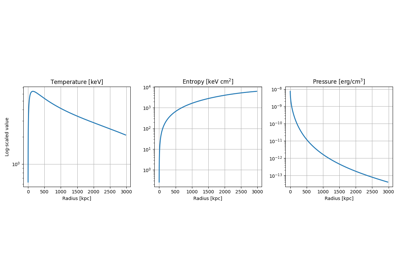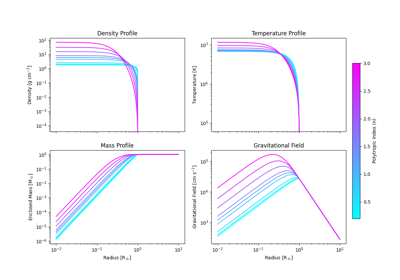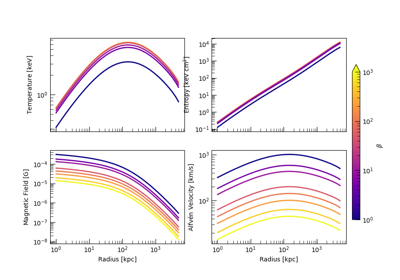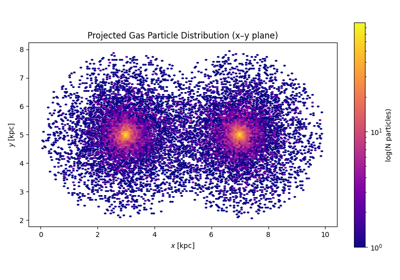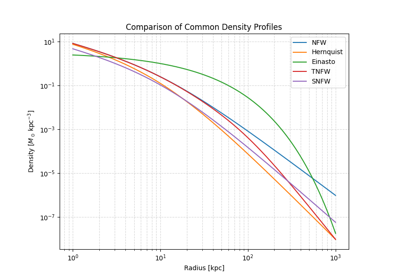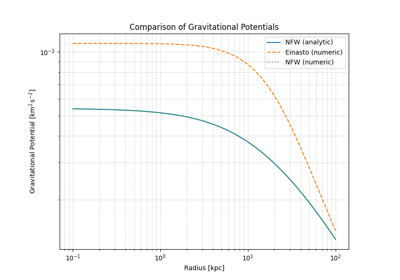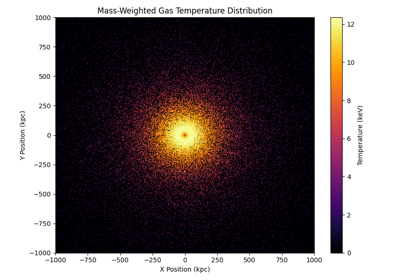Pisces Example Gallery#
Welcome to the Pisces Example Gallery!
This section presents a curated collection of concise, hands-on examples illustrating the key features and modeling capabilities of the Pisces library. Whether you’re working with analytic cluster models, constructing physical profiles, or exploring differential geometry in astrophysical systems, these examples are built to teach by doing.
Each example is:
Focused on a single, well-defined concept,
Ready to run and customize in your own workflows,
Accompanied by inline documentation and visual outputs where helpful.
Explore the gallery to get started quickly, understand how to use Pisces effectively, and adapt these templates to accelerate your scientific modeling.
Examples are grouped by their conceptual location within the Pisces codebase.
Models#
This section showcases end-to-end examples for building and analyzing complete astrophysical models. These are practical workflows that combine various components, such as density profiles, temperature or pressure models, and often include magnetic fields or particle distributions.
Models are contained in the models subpackage. For documentation on models,
see Astrophysics Models in Pisces.
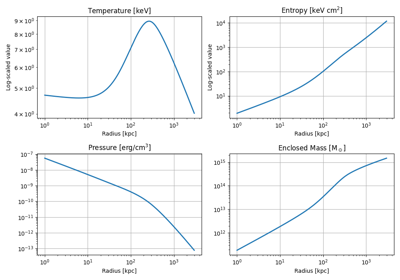
Build a Galaxy Cluster From Temperature and Density
Simulations and Initial Conditions#
These examples demonstrate how to export models created in Pisces for use as initial conditions in various astrophysical simulation codes. They cover the process of translating static models into dynamic simulations, including setting up the necessary parameters and formats required by different simulation software.
Simulation support is provided through simulation and may depend on third-party libraries.
For documentation on simulation features, see Simulations in Pisces.
Profiles#
This section provides examples illustrating how to use and customize built-in profiles for density, temperature, entropy, and related physical quantities.
Examples here are generally isolated to demonstrate specific analytic or empirical profiles and how they can be composed into more complex systems.
Geometry and Grids#
This section provides examples related to geometry and grids in the context of astrophysical modeling with Pisces. These examples demonstrate how to define and manipulate various geometric configurations and grid structures that are essential for accurate simulations and analyses. Because these grids and coordinate systems are a core part of every Pisces model, these examples are more conceptual and less end-to-end than those in other sections.
Geometry and grid support is provided through grids and coordinates.
Documentation for coordinate grids can be found at Grids in Pisces, and documentation for coordinate systems
can be found at Coordinate Systems in Pisces.
Particle Generation and Sampling#
This gallery focuses on examples where particle sampling and data generation are the main goals. This includes distributing particles from profile-based models, assigning velocities, and exporting snapshots for simulation use.
Extensions and Experimental Features#
This section showcases examples that go beyond the core functionality of Pisces. It includes experimental modules, plugin-based systems, or utilities that may be under active development or not yet part of the stable API.
Contents:
Visualization tools
Third-party integrations
Experimental and contributed utilities
